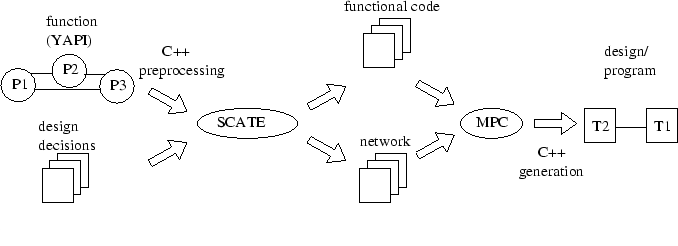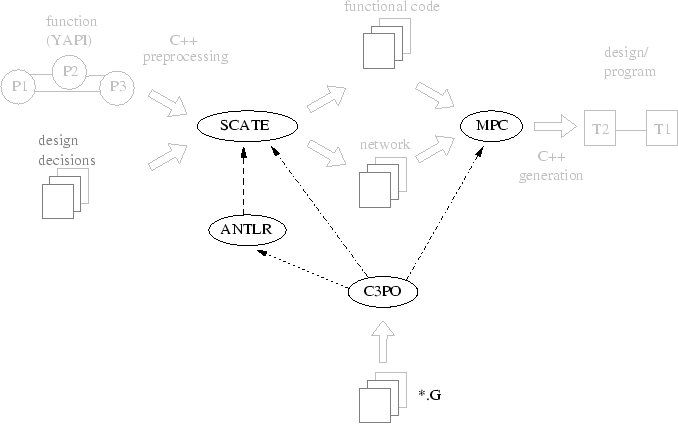
| [Objective] | [User View] | [Features] | [Software infrastructure] | [Collaboration] | [Documentation] | [History] | [Publications] | [Acknowledgment] |

| The objective of SCATE is to provide a generic environment for fine grained C++/C parsing/analysis/transformation and hardware mapping tasks. The name environment is significant here. It means that the whole infra structure is a software platform which can help you to implement your own C++/C based analysis/transformation/mapping tasks. You are free to use it, but there where functionality is (still) lacking, you are invited to contribute to it as well. To allow new functionality to get in, SCATE is Open Source under the GPL License. |
| The functionality of SCATE that has been developed so far is a system-level design and programming environment for embedded multiprocessors. Here we consider the mapping of C++ based specifications of embedded systems functions onto heterogeneous multiprocessors containing hardware and software components. In practice this relates to a number of source code transformations on process networks. |
| Transformations should be specified by a system designer. The enforcement of these design decisions in the source code is automated by the SCATE tool. The source code after transformation can - with or without additional manual modifications - be used as input for existing hardware and ⁄ or software compiler(s). |


We gratefully acknowledge the contributions to the development of SCATE from Erwin de Kock.
Finally, we thank SourceForge.net for hosting this project.